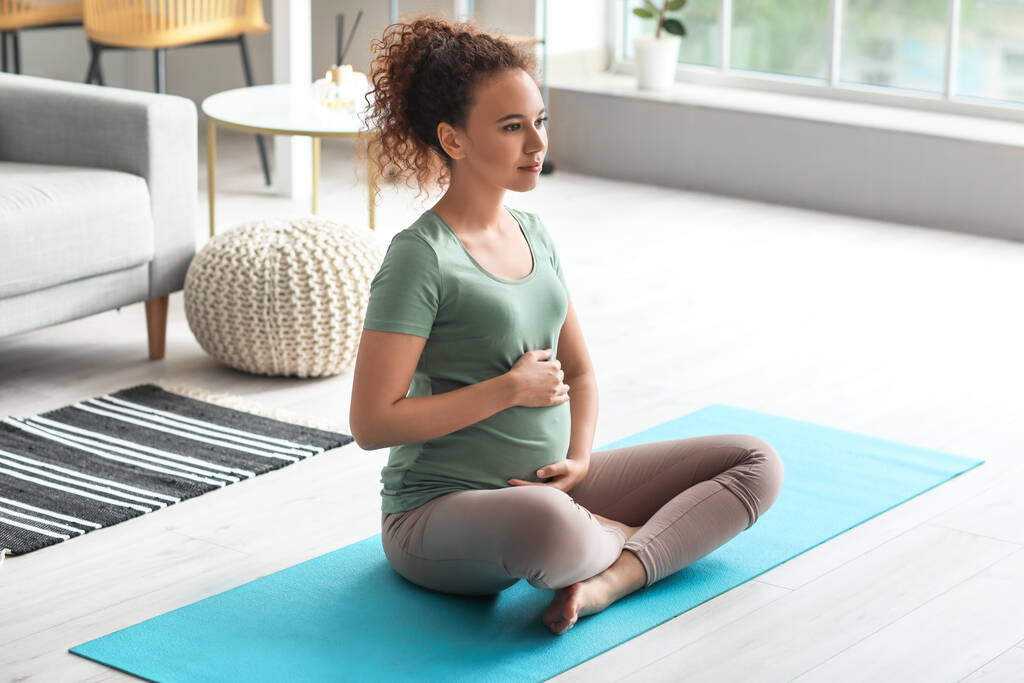Discover the potential benefits of changing your sitting position during late pregnancy to alleviate back pain.
Can Changing Your Sitting Position Help Reduce Late Pregnancy Back Pain?
Late pregnancy back pain is no fun, but what if I told you that changing your sitting position could actually help alleviate some of that discomfort? It’s true! Understanding why back pain occurs in late pregnancy and how your sitting position plays a role can make a big difference in finding relief. So, let’s dive into the wonderful world of pregnancy backaches and discover some tips and tricks to keep you sitting comfortably.

Understanding Late Pregnancy Back Pain
As your baby bump grows, so does the strain on your lower back. This can be attributed to a number of factors, such as hormonal changes, weight gain, and the shift in your center of gravity. It’s like a bowling ball that you’re carrying around, except this one comes with tiny kicks and hiccups.
Aside from the obvious physical changes, your posture can also be a contributing factor to back pain during pregnancy.
During late pregnancy, back pain can become a common companion for many expectant mothers. The causes of this discomfort are multifaceted and can vary from person to person.
Causes of Back Pain in Late Pregnancy
There are several reasons why your back might be feeling a little cranky during the late stages of pregnancy. One common culprit is the hormone called relaxin. This hormone helps loosen the ligaments in your body to prepare for childbirth, but it can also lead to instability in your spine.
Relaxin, although necessary for the birthing process, can cause your joints and ligaments to become more flexible. This increased flexibility can result in a lack of stability in your spine, leading to discomfort and pain.
In addition to relaxin, weight gain can put extra pressure on your back and contribute to discomfort. As your belly expands, your center of gravity shifts forward, causing your back muscles to work harder to support you. Talk about a full-time job!
The additional weight gained during pregnancy can place a significant burden on your back muscles, which may already be strained from the growing baby bump. The constant effort required to maintain balance and support your body can lead to muscle fatigue and pain.
Last but not least, the curvature of your spine may increase during pregnancy, placing additional stress on your back muscles. It’s like your body is doing an interpretive dance routine, but your back muscles didn’t get the memo.
As your baby grows, your spine naturally adjusts to accommodate the increasing weight and size of your belly. This adjustment can result in a change in the curvature of your spine, potentially causing discomfort and strain on your back muscles.
It’s important to note that every pregnancy is unique, and the causes of back pain can vary from person to person. Factors such as pre-existing back conditions, posture, and overall physical fitness can also contribute to the intensity and frequency of back pain during late pregnancy.
Understanding the causes of late pregnancy back pain can help you find ways to alleviate and manage the discomfort. Remember to consult with your healthcare provider for personalized advice and guidance tailored to your specific needs.
The Role of Sitting Position in Back Pain
Believe it or not, your sitting position can have a tremendous impact on the health of your back during pregnancy. Poor posture can exacerbate existing back pain and potentially lead to even more discomfort. So, let’s take a seat and explore how your sitting position can make a difference.
During pregnancy, your body goes through numerous changes, and your back is no exception. The added weight of your growing baby can put strain on your spine, making it more susceptible to pain and discomfort. That’s why it’s crucial to pay attention to your sitting position and make adjustments accordingly.
The Impact of Poor Sitting Posture
Sitting slouched or hunched over might feel comfortable in the moment, but it can wreak havoc on your back over time. Poor posture compresses your spinal discs, puts strain on your muscles, and can even affect your baby’s positioning.
Imagine your spine as a delicate stack of building blocks. When you slouch, you’re essentially squishing those blocks together, causing them to lose their natural alignment. This misalignment can lead to muscle imbalances and increased pressure on your nerves, resulting in back pain.
But fear not! There are some sitting positions that can provide sweet relief for your aching back, and they don’t involve sitting on a magic beanstalk or anything like that.
Ideal Sitting Positions During Pregnancy
There are a few sitting positions that can help reduce back pain during pregnancy. One option is to sit with your feet propped up on a footrest or stool. This can relieve some of the pressure on your lower back and promote better blood circulation. Plus, it’s a great excuse to put your feet up and relax!
Another sitting position to try is using a chair with good lumbar support. This helps maintain the natural curve of your spine and reduces strain on your back muscles. It’s like having a personal cheerleader for your back!
If you don’t have access to a fancy chair, simply rolling up a towel and placing it behind your lower back can provide some much-needed support. It’s like having a mini spa treatment for your spine.
Additionally, incorporating gentle exercises and stretches into your daily routine can further alleviate back pain. Pelvic tilts, cat-cow stretches, and gentle yoga poses can help strengthen your core muscles and improve your posture.
Remember, maintaining good posture while sitting is not only beneficial for your back but also for your overall well-being. It can improve digestion, enhance breathing, and even boost your mood!
So, the next time you take a seat, take a moment to assess your sitting position. Pay attention to your posture, make adjustments if needed, and give your back the love and support it deserves. Your spine will thank you!
Techniques to Improve Sitting Position
Now that you know the importance of sitting properly during pregnancy, it’s time to turn that knowledge into action. Here are some practical tips to improve your sitting position and relieve that nagging back pain.
During pregnancy, your body undergoes numerous changes, and one of the most common discomforts is back pain. But fear not, there are ways to alleviate this discomfort and promote a healthier sitting position.
Using Supportive Furniture and Accessories
Investing in supportive furniture can make a world of difference for your back. Look for chairs with adjustable backrests and lumbar support. These features will help maintain the natural curve of your spine and reduce strain on your back muscles.
Additionally, you can consider using a pregnancy support pillow or cushion to provide extra comfort and promote good posture. These pillows are specially designed to support your growing belly and relieve pressure on your lower back.
And don’t forget about your feet! Putting a small stool or footrest under your desk can help alleviate pressure on your lower back and keep your feet happy. By elevating your feet slightly, you can improve blood circulation and reduce swelling in your legs.
So, imagine sitting in a chair with adjustable backrest, supported by a pregnancy pillow, and with your feet resting on a comfortable footrest. It’s like giving your back a little vacation!
Practicing Mindful Posture
Being mindful of your posture throughout the day can significantly reduce back pain. Keep your feet flat on the ground, shoulders relaxed, and spine aligned. Imagine balancing a book on your head like a graceful ballerina (even if you feel more like a waddling penguin).
When sitting, avoid crossing your legs as it can strain your hips and lower back. Instead, keep your knees at a 90-degree angle and distribute your weight evenly on both hips.
It may take some practice, but with time, maintaining good posture will become second nature. Soon enough, people will be asking you for posture advice! So, embrace your inner ballerina and sit tall and proud.
In addition to mindful posture, it’s essential to take regular breaks from sitting. Stand up, stretch, and walk around for a few minutes every hour. This will not only help relieve back pain but also improve blood circulation and prevent swelling.
Remember, pregnancy is a beautiful journey, and taking care of your body is crucial for a smooth and comfortable experience. By implementing these techniques, you can improve your sitting position, alleviate back pain, and enjoy this special time to the fullest.
Other Ways to Alleviate Pregnancy Back Pain
Changing your sitting position is just one piece of the puzzle when it comes to managing pregnancy back pain. Here are a couple of other strategies that can make a world of difference:
Aside from changing your sitting position, there are several other effective ways to alleviate pregnancy back pain. One of the most important strategies is regular exercise. Staying active during pregnancy not only helps maintain overall health but also strengthens your back muscles, which can significantly reduce discomfort. Engaging in low-impact exercises like swimming, prenatal yoga, or walking can work wonders for your back pain. Not only will you be taking care of your body, but you’ll also have the perfect excuse to show off your fabulous pregnancy workout attire!
In addition to regular exercise, another effective method to alleviate pregnancy back pain is prenatal massage. Who doesn’t love a good massage, especially when you’re pregnant and experiencing discomfort? Prenatal massage is specifically designed to target those achy areas and help release tension in your back. The soothing touch of a skilled massage therapist can provide immense relief and relaxation. However, it is crucial to consult with a certified prenatal massage therapist to ensure you and your baby are in good hands. They have the necessary expertise and knowledge to provide safe and effective prenatal massages tailored to your specific needs.
By incorporating regular exercise and prenatal massage into your routine, you can effectively manage and alleviate pregnancy back pain. These strategies not only provide physical relief but also contribute to your overall well-being during this special time in your life.
When to Seek Medical Attention
While back pain is common during pregnancy, it’s essential to keep an eye out for severe or persistent discomfort. Here are some signs that it’s time to consult your healthcare provider:

Identifying Severe Back Pain
If your back pain is severe, debilitating, or accompanied by other symptoms like fever or abdominal pain, it’s crucial to seek medical attention. This could be a sign of a more serious underlying condition that requires treatment.
Consulting Your Healthcare Provider
If your daily routines, including sitting position adjustments, fail to provide relief or if you have any concerns about your back pain, don’t hesitate to reach out to your healthcare provider. They can provide personalized advice and guidance based on your unique situation.
Remember, mama, your comfort is important too! So, embrace those ergonomic sitting positions, pamper yourself with some supportive furniture, and seek help when needed. By making these proactive changes, you can bid farewell to late pregnancy back pain and hello to a more enjoyable journey to motherhood!



